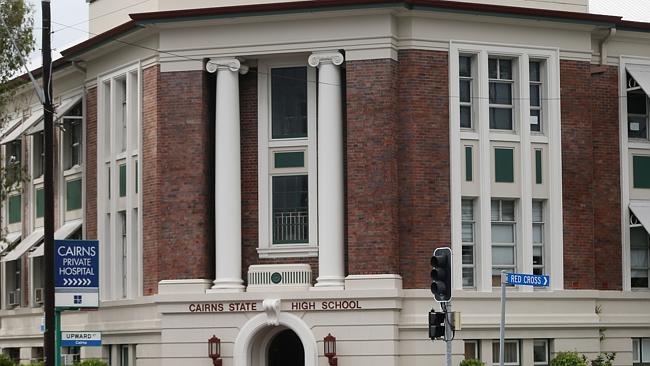
TENSE WAIT: People who came into possible contact with a patient diagnosed with tuberculosis are expected to find out their results today. PIC: STEWART MCLEAN Source: News Corp Australia
MORE than 110 people who came into possible contact with a Cairns patient diagnosed with tuberculosis are expected to find out today if they are clear of the disease.
Queensland Health is expected to today, on World TB Day, release the results of its contact tracing, after a member of the Cairns State High School community was diagnosed with active TB.
While there has been no official confirmation, some reports suggest the infected person is a Year 12 student.
MORE NEWS…
PEOPLE POWER HOPES FOR INSURANCE FUND
The patient remains in isolation in Cairns Hospital in a stable condition.
Early test results indicated the person did not have a multi-drug-resistant strain of the disease, making chance of transmission low.
The latest case marks the third time TB has been confirmed in a Far North school in recent memory, including a case in the early 2000s at a school on Badu Island in the Torres Strait, and a case at a school near Innisfail in the late 1990s.
Health experts have long held fears the respiratory disease would spread from Papua New Guinea to the Australian mainland.
There is a high burden of TB in PNG’s National Capital District, including Port Moresby, according to Medecins Sans Frontieres.
The organisation is scaling up its global efforts to help end the TB scourge by opening a new program in PNG, which will be fully operational in Port Moresby by May.

CONCERN: The latest case marks the third time TB has been confirmed in a Far North school in recent memory, including a case in the early 2000s at a school on Badu Island in the Torres Strait, and a case at a school near Innisfail in the late 1990s. PIC: AP/THE CANADIAN PRESS, CDC, JANICE CARR Source: AP
TB still kills 1.5 million people around the world and its drug-resistant form continues to claim more lives each year.
Medecins Sans Frontieres deputy program manager for PNG, Dr Isaac Chikwanha, said the drugs and treatment regimes used to treat TB, in particular multi-drug-resistant strains of the disease, were currently inadequate.
He said there were long treatment periods of up to two years involving large amounts of daily tablets and seven months of injections, which carry a high risk of serious side effects, including psychosis and irreversible deafness.
“The treatment is also expensive, about $US5000 per patient per year and it’s not easy for national TB programs to scale up,’’ he said.
TB is a bacterial infection that can affect almost any part of the body. The disease is most common in the lungs, a form called pulmonary TB.
Originally published as TB scare for 110 at Queensland school
